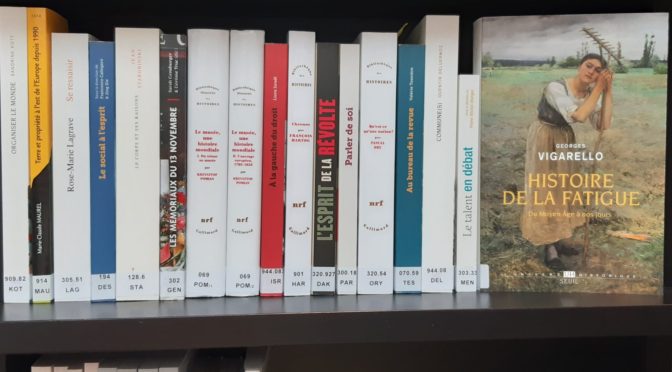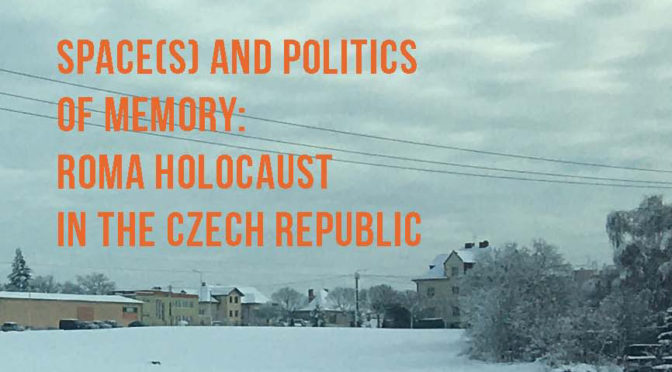
The new edition of CEFRES Review of Books will take place on Friday, December 10th, at 3 pm, online,
The link will be provided soon.
This informal meeting gathers CEFRES team, the library readers, and professionals from libraries and publishing. The aim of our Review of Books is to make better known the publishing landscape in humanities and social sciences. Each book is presented in no more than 10 minutes, so to stress its originality and stakes.
So far, the following presentations are announced:
- Marie-Madeleine de Cevins : Démystifier l’Europe centrale : Bohême, Hongrie et Pologne. VIIe-XVIe siècles (Passés Composés 2021) by Arthur Pérodeau
- Leyla Dakhli (& al.) : L’esprit de la révolte. Archives et actualité des révolutions arabes (Seuil, 2020) by Clément Steuer
- Rose-Marie Lagrave : Se ressaisir. Enquête autobiographique d’une transfuge de classe féministe (La Découverte 2021) by Jérôme Heurtaux
- Karol Modzelewski : Nous avons fait galoper l’histoire. Confession d’un cavalier fatigué (Maison des sciences de l’homme, 2018) by Florence Baudoux Vychytil
- Pascal Ory : Qu’est-ce qu’une nation ? Une histoire mondiale (Gallimard 2020) by Mátyás Erdélyi

Space(s) and Politics of Memory:
Roma Holocaust in the Czech Republic
A Proteus Webinar
When: December 10th, 2021, at 10 am
Where: en ligne on zoom ID 450 714 1898 code 681515
https://upr-si.zoom.us/j/4507141898?pwd=MnVqYmZPTzZqbldYUEFHODRSbXlldz09
Language: English
Speaker
Yasar ABU GHOSH, lecturer, Charles University, Faculty of Humanities
Discussants
- Alenka JANKO SPREIZER, associate professor, University of Primorska, Faculty of Humanities
- Nikola LUDLOVÁ, PhD candidate at Central European University and CEFRES
A Proteus webinar organized by
- Petra KAVRECIC, assistant professor, University of Primorska, Faculty of Humanities
- Felipe Kaiser FERNANDES, PhD candidates at IIAV EHESS, associated at CEFRES & Charles University
Abstract
In anthropology, the relation of Roma to the past has been a central concern in conceptualizing Romani forms of attachment and belonging. These being enacted in the present, the past is seen as a “foreign country”. However, since 1980’s we have been witnessing a rising engagement of various European Roma and pro-Roma agents with struggles over the recognition of the memory of Holocaust and Romani victimhood. Be it in artistic expressions, in memoirs writings or in political participation, the shift towards historical framing signals a rather different attitude towards the past. The apparent contradiction has been highlighted in several contributions that sought to explain it by reference to new politics of identity, to ethnic emancipation and Europeanization, or by discerning the formation of a Romani elite as the bearer of an emerging political subjectivity.
In my presentation I will build on a dissection of a commemorative practice identified as name-reading, a practice that is constituted at the nexus of inclusive politics of commemoration and what is called the archival mode in Holocaust commemoration. Dissecting the practice should allow to raise questions that would connect a practice of commemoration with some of the cultural frames of memory identified by anthropologists of different Roma communities. I will be asking does name-reading serve what commemoration is supposed to do, that is actualize the past for the needs of the present?
Yasar Abu Ghosh is lecturer in sociocultural anthropology at the Department of Social and Cutlural Anthropology, Charles University, Prague and faculty member of NYU Prague. He specializes in topics related to Central European Roma, economic and political anthropology and ethnographic methodology. His latest research focuses on survival strategies of poor Roma in the Czech Republic, on politics of marginalization and the enduring effects of racialized regimes of state minority policies, as well as on the formation and logic of Romani subjectivity in response to processes of cultural dispossession. In 2016 he was a Fulbright scholar at the Department of Anthropology, University of California in Berkeley, he was also a visiting professor at CEU in Budapest, LMU in Munich, and at EHESS in Paris. Currently he is working on a monograph drawing on a history of participant observation of memory-becoming in relation to Roma and non-Roma struggle over the recognition of suffering and historic memory in Czechia.


